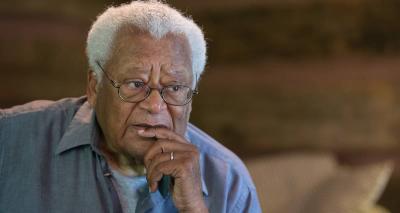A Tribute to Reverend James M. Lawson Jr.

Photo by Mike DuBose, 2016 / UM News
The Rev. James Lawson says the Black Lives Matter movement is the most important nonviolent campaign since the civil rights movement.
Lawson taught nonviolence at the University of California, Los Angeles, and at California State University in Northridge.
Ending Racism USA pays tribute to Reverend James M. Lawson Jr. Lawson died on June 9, 2024, at the age of 95. He was a United Methodist pastor and civil rights pioneer.
Lawson was a member of the Fellowship of Reconciliation while he was in college. He spent 3 years in India and became an ardent believer in the philosophy of Mohandas Gandhi. However, as a Methodist pastor and teacher, he would say “Gandhi was not our major teacher, Jesus was.”
I had the honor of hearing him speak on several occasions. His colleagues gave Gandhi and Dr. King credit for shaping his nonviolent mindset, but he acknowledged his mother for planting that spirit within him. After he slapped a white boy for hurling an insult at him, his mother asked him “What good did that do? There must be a better way.” Lawson identified that as the pivotal event in his life.
While his name is not as well-known as some of his contemporaries, such as Dr. Martin Luther King Jr. and John Lewis, he earned the title of “the architect of the Civil Rights Movement.” He studied and taught nonviolent theory and practice. He is credited with helping to launch the Nashville lunch counter sit-ins, the Freedom Rides, the Memphis sanitation strike, and worker and immigrant rights movements in Los Angeles.
Lawson practiced what he preached. During the Korean War, he was a conscientious objector of the draft and, as a result, spent 13 months in jail. He was expelled from Vanderbilt Divinity School in 1960 because of his organization and participation in civil rights activities.
In 2005, Vanderbilt named him a Distinguished Alumnus. He was invited to serve there as a Distinguished University Professor in 2006. In March 2022, Vanderbilt University established the James Lawson Institute for Research and Study of Nonviolent Movements. His deep conviction and faith allowed him to remain consistent in his pursuit of peace, loving and forgiving through parish ministry, teaching, and faith-based nonviolent organizing.
May our memory of his work energize us to engage others and to stay deeply committed to the cause of ending racism.
